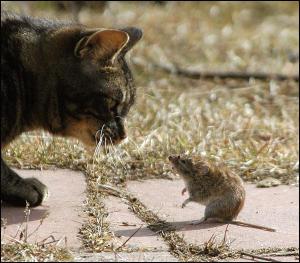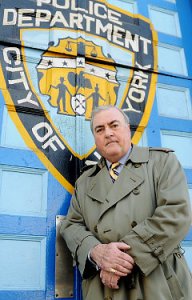Since leaving the day-to-day world of reporting for a local television station, I’ve heard from friends a lot of the same kind of comments when I ask, “how is it?”
“Worse than ever,” is what they say. News has never really been a place where everybody’s happy (why is that?), but with the money printing machine no longer working, the managers letting their intensity to produce turn into dark humor at best and outright boundary crossing at worst, local newsers describe a business that at times seems to have all the fear and chaos of an industry in the turmoil of change, but somehow devoid of the excitement of the dawning of something new.
This lack of inspiration, I believe, is another indication that stations are deeply invested in the television of the 70s, 80s and 90s, and have turned the screws on employees in an effort to make that fading reality somehow work. It’s as if you could just whip a horse hard enough, you could make the elegant horse and buggy a competitor to the car.
But the horse is miserable, and in many cases, the horse has had it. They want out.
I got to know John P. Wise during our time at WNYW in New York. A smart guy whose talents spread from the written word to a photographer’s eye and a comedian’s dry wit, he always seemed to me the kind of person who makes a newsroom more enjoyable. In catching up recently, I learned he’s lost his heart for horse-and-buggy work.
 DISPATCH FROM THE FRONTLINES: John P. Wise
DISPATCH FROM THE FRONTLINES: John P. Wise
(Back when Pat Forde used to write for The Louisville Courier-Journal, he’d begin some of his sports columns with: “Deathless prose.” That’s your warning that this piece is slightly all over the place. Hope you can follow along.)
What a terrible time it is these days to get laid off from your job, what with the sour economy and all.
And getting fired isn’t much better.
But that’s what happened to me about five weeks ago. I actually got over the ego tweak a few weeks prior when I was told I was being placed on a 30-day probation. That very night, rather than plotting a course to try to save my job, I instead came home, after another unappreciated 11- or 12-hour day, of course, and outlined my next project, a nationwide tour in which I’ll cover the upcoming college football season on the road, an endeavor you can already follow now at http://onegreatseason.com.
OK, back to getting fired. I saw a movie recently in which an actor playing a CIA official told an attorney general who was threatening the CIA guy in some way, something to the effect of, “once we realize that life is finite, it becomes easy to accept everything else.” The guy meant that if something doesn’t work out, it’s OK; life shall continue. Just do something else. It’s up to the outgoing to decide if he wants to go out on his feet or on his knees. Will you play by their rules? Or do you need your own?
Now don’t get me wrong; being let go last month was hardly Hollywood dramatic or even surprising. After six years at Internet Broadcasting and nearly three years at FOX — two successful stretches I’m proud to have under my belt — I just lost the passion to be a news guy. I can admit my share of the blame here, which is to say that I’m entirely responsible for my firing. But let me also offer a piece of advice for big media so it doesn’t lose other talented, enthusiastic, once-passionate journalists.
It’s OK to be friendly. It’s OK to have your act together. It’s OK to be honest. These attributes are things you probably desire in those who work for you. So why would you think you don’t need to return the favor to them? While I can admit it was me who lost the passion, perhaps more supportive superiors could have coached me back in.
I know times are tough. Layoffs are all over the place. Bottom lines boast fewer numbers to the left of the decimal. These facts, however, do not allow you to keep a toxic, negative environment in which the vast majority of your people are unhappy. Think about that for a minute. Let go of your corporate instinct and let that sink in: your people are unhappy. And isn’t happiness what we’re all in search of more than anything else?
Yet many of your people feel guilty just for taking the 15 minutes necessary to venture out for a sandwich with which they’ll promptly return to their desks and work while eating — but surely not enjoying — it.
This plate of sour grapes isn’t addressed to one former employer, but to the industry overall. I’ll never understand how in a communication business there are so many terrible communicators. It has astounded me for 17 years, since I got my first stringing job at a major metro daily and was excited to say hello to a veteran columnist as I passed him in a quiet corridor, and didn’t even get a look back in return.
Now I’m not saying that I’ve found zero happiness in the handful of newsrooms I’ve worked in since 1992. But if you work in news, do me a favor today: ask 10 co-workers if they truly enjoy their jobs, their newsrooms, their supervisors. I’ll endorse my first unemployment check over to you if just one of them says yes to all three.
I’ve enjoyed many of my assignments. Shoot, I’ve enjoyed most of my years. I’ve won a Murrow and a couple of SPJs; I was hoping to get my hands on an Emmy one day. But if it means I have to be “very excited” to ramp up, move forward, peel off, reach out, touch base and circle back before the conference call or the managers’ meeting, forget it. I’ll gladly go back to valet parking cars. I’m totally serious, and I’m totally pushing 40.
Most job ads you see for editorial people include a note like “creativity a must.” That’s a laugh. I’ve attended many morning meetings and watched reporter after reporter bring good ideas to the table and get shot down far more often than not. Long before the tedious gathering, the agenda is already set by someone who’s either never walked the beat or hasn’t in at least 20 years.
Stations say they’re looking for new and creative, but they’re not. Instead, they want the apartment building where a fire was put out an hour ago, but since nothing else is happening, they’ll send the chopper anyway to talk to the one person who was injured so mildly that he’ll give you the all-important exclusive interview right then and there. They’ll call it news, and after the commercial they’ll tell you more about a flap or a controversy or a danger or a Jonas brother.
Certainly I realize nothing’s perfect, but your place of employment, where you spend 40 or 50 or nowadays 60 hours a week, shouldn’t be dysfunctional either. I don’t expect a picnic; that’s why it’s called work. But so many good news people I talk to fully hate going to their jobs. And the fact that most newsrooms aren’t even 60 degrees doesn’t help matters.
There’s been no shortage of talk the last few years of the great changes impacting in the industry. Technology is certainly at the forefront of the new frontier, but what about the other changes? The great managers are those who can do more with less, but in the current climate, where staffs have been gutted and gutted again, is it a legitimate expectation to not only try to maintain the same level of productivity, but to increase it? Having editors write scripts isn’t resourceful; it’s just a good way to turn out bad copy in most cases, and perhaps miss slots. It’s one thing to build a staff of multi-tooled storytellers, but in some cases you just have to be realistic.
Maybe it’s CNN’s fault for starting round-the-clock news two decades ago. Like any TV trend, everybody else — national and even local — played follow the leader. And like any fad, TV or not, we gobble it up, shove it down our customers’ throats, try to make as much money as possible as quickly as possible, then try to stretch it out and fatten our pockets for as long as possible, and then act surprised that blue skies aren’t forever. We flatter ourselves into thinking we’re more important than we really are. Does the makeup-cake reporter really need to tag out of her story with driver-safety tips like “wear your seat belt and obey traffic signals and signs” a couple hours after yourtown’s latest fatal car accident?
At this point, it doesn’t matter who’s to blame. The damage has been done, and while exciting changes in technology hog the ink in the trade pubs, other changes in humans will be just as critical if the industry is to survive.
[Wise has left the news business to pursue a passion project he’s been wanting to pull off since 1994. Visit http://onegreatseason.com to find out what it is.]

 If you haven’t yet read Jeff Jarvis’ excellent book, What Would Google Do?, do yourself a favor and pick up a copy.
If you haven’t yet read Jeff Jarvis’ excellent book, What Would Google Do?, do yourself a favor and pick up a copy.






 Sheehan told the Richard Huff the station ended its relationship with a letter delivered to his home. This is, sadly, the new normal in our business: nobody tells you to your face. It’s a way of doing business that reduces us all, and it’s shameful.
Sheehan told the Richard Huff the station ended its relationship with a letter delivered to his home. This is, sadly, the new normal in our business: nobody tells you to your face. It’s a way of doing business that reduces us all, and it’s shameful.



